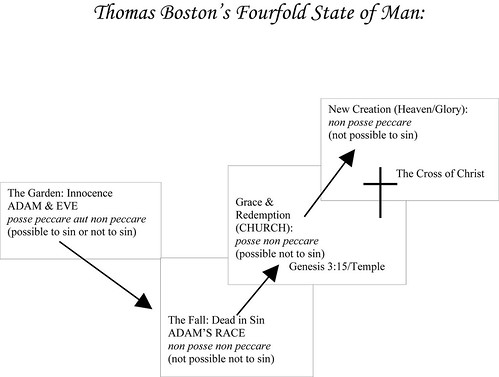The Reformers held to a high view of the Bible’s inspiration. The Bible is the Word of God, the verbum Dei, or the voice of God, the vox Dei. For example, John Calvin writes:
When that which professes to be the Word of God is acknowledged to be so, no person, unless devoid of common sense and the feelings of a man, will have the desperate hardihood to refuse credit to the speaker. But since no daily responses are given from heaven, and the Scriptures are the only records in which God has been pleased to consign his truth to perpetual remembrance, the full authority which they ought to possess with the faithful is not recognized, unless they are believed to have come from heaven, as directly as if God had been heard giving utterance to them.
“As if” does not mean Calvin believed that the Bible had dropped down from heaven directly or that God himself wrote the words on the pages of Scripture. Rather “as if” refers to the weight of divine authority that attends the Scriptures. This authority is rooted and grounded in the fact that Scripture was originally given under divine inspiration. This claim agrees with the Bible’s own claim to authority: “All Scripture is given by inspiration of God, and is profitable for doctrine, for reproof, for correction, for instruction in righteousness, that the man of God may be complete, thoroughly equipped for every good work” (2 Tim. 3:16–17).
Paul’s declaration of Scripture’s inspiration refers to its origin. He uses the Greek word theopneust, which means “God-breathed.” Though the word is usually translated “inspired,” which means “breathe in,” technically theopneust refers to a breathing out, which might more accurately be translated “expired.” Paul is saying that Scripture is “expired” or “breathed out” by God. This is not a mere quibble. It is obvious that for inspiration to take place there must first be expiration. A breathing out must precede a breathing in. The point is that the work of divine inspiration is accomplished by a divine expiration. Since Paul says that Scripture is breathed out by God, Scripture’s origin or source must be God himself.
When Calvin and others speak of Scripture’s inspiration, they refer to the way in which God enabled the human authors of Scripture to function, so that they wrote every word under divine superintendence. The doctrine of inspiration declares that God enabled the human writers of Scripture to be agents of divine revelation, so that what they wrote was not only their writing but in a higher sense the very Word of God. The origin of Scripture’s content is found ultimately in God.
Much debate has raged concerning the exact mode or method of this divine inspiration. Some have contended for a mechanical inspiration or dictation, reducing the human authors to robotic machines or passive stenographers who merely record the words dictated to them by God.
But the Scriptures themselves make no such claim. The mode or precise manner of divine inspiration is not spelled out. The crucial point of the biblical claim to authority is that God is the source who breathes out his word. It is clear from a study of the Bible itself that the authors’ individual styles remain intact. The inspiration of the Bible refers then to the divine superintendence of Scripture, preserving it from the intrusion of human error. It refers to God’s preserving his Word through the words of human authors.
Technorati Tags: Scripture




